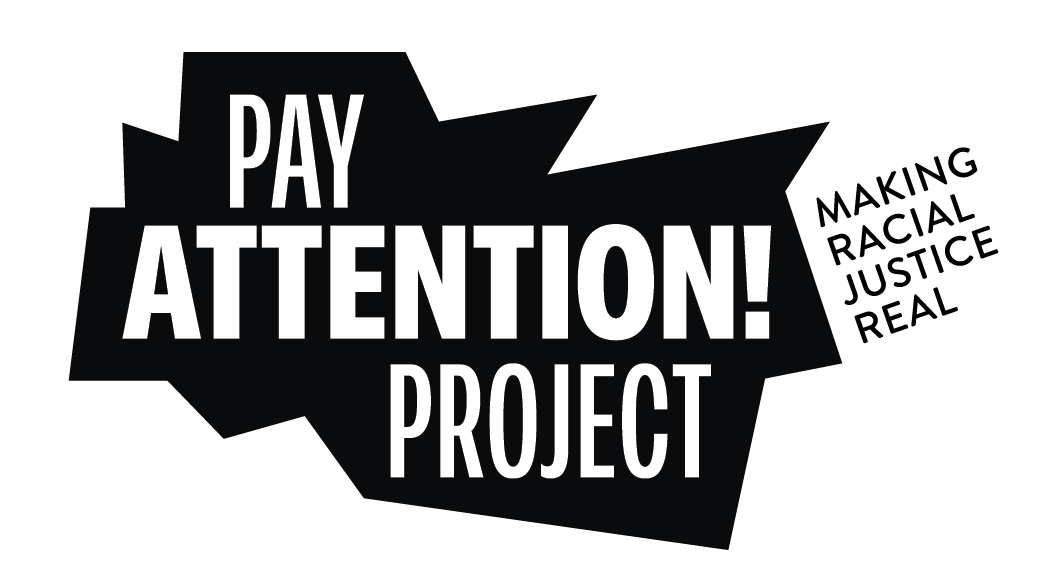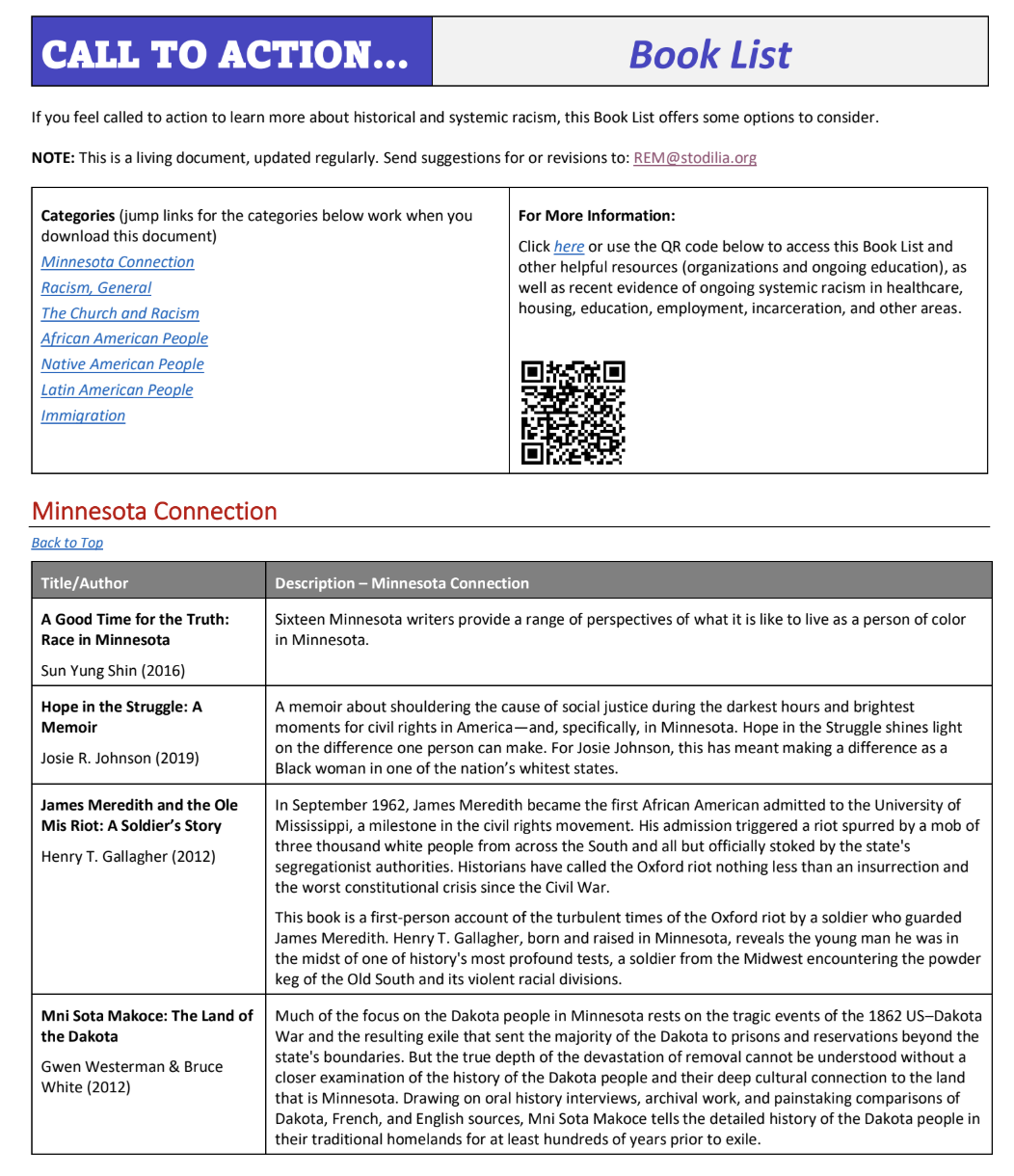EDUCATION
Knowledge about the harmful decisions of our country’s past helps us better understand the ongoing challenges with racism today – including the policies embedded in our society’s systems that have sustained racial inequality across generations.
Pay Attention! recognizes that the history of our country involved hundreds of years of African American enslavement and discrimination, as well as Native American elimination and assimilation. While we are not responsible for these tragic events of our past, we, as Americans, must acknowledge these historical facts and their lingering consequences.
Patriotism has an important role in keeping us proud and focused on our country’s highest ideals and values. Part of being patriotic is understanding the full spectrum of our American history. These resources provide a variety of ways to learn and teach about the origins and impacts of racism.
“History, despite its wrenching pain, cannot be unlived, but if faced with courage,
need not be lived again.”
~ Maya Angelou
Jim Stewart’s YouTube Series
“We don’t own the history; we own its consequences.”
Jim Stewart’s Historical Tonic for Fragile White Folks is for good-hearted white people who feel the prick of conscience to do something regarding race relations, and, who, in a crisis (such as the murder of George Floyd), have often taken some right action (like, showing up), but perhaps, now, aren’t quite sure what to do next.
In 16 short YouTube presentations, Dr. James Stewart, late Macalester College history professor and scholar of African American history, offers insight, wisdom (and a small dose of tonic) for how white people might begin or continue to unwind the white supremacist attitudes, beliefs, assumptions, and policies that pervade American culture, institutions, and society.
-
These easy-to-view videos (7-10 minutes each) address questions of how we got to the present moment in race relations. They guide us to get the facts straight in understanding the roots of our white supremacist society. But there’s no guilt implied — we are not personally responsible for things that happened in the past. However, as Americans, we are responsible for the consequences, the outcomes, and the baggage that has come from our history.
According to Professor Stewart, the most important ingredient in making a shift in contemporary race relations is for white people to take a more courageous stance regarding the systemic racism that is baked into all our institutions. When white people show up on the scene — any scene, from school to church, store or street — and are accurately informed about the realities of white supremacy, change happens. Stewart cites two major occasions in our history when white people showed up in big numbers — the Abolitionist movement of the mid-19th century and the Civil Rights era of the 1950s and 1960s. When white people stood up, rose to the occasion, and stayed in the game, good things happened! Great strides were made for Black people and American democracy.
These freely available YouTube lectures encourage white people to build muscle — the muscle of courage that allows us to fully acknowledge the consequences of our history. The history Dr. Stewart is talking about is the tortured history of white people’s brutality to Black people. We are asked to bulk-up our tolerance to see and believe the violence of white supremacy history so as to forge a personal path, a more empathetic path, a path that moves us differently in the world. We come to understand ourselves more honestly — we question our personal privilege and our own supremacy views. We see ourselves as embedded in a deeply racist society. We become impelled to make changes in our lives, beginning in small ways. Suggestions: shop at a Black-owned business, donate time or money to a Black non-profit. Better yet, get to know a Black person on a personal basis by sharing some aspect of life together.
Although the series is non-political, a parallel is made between our current times and the beginnings of the Jim Crow era in the late 19th century, with its long historical tail. In this present distressful time, may these videos help us cultivate the courage to become less fragile, less timid, and more resolute and clear-eyed in our moral conviction about what needs to be done and how we can take the next step forward to do it.
Introduction: Jim Stewart’s Tonic for Fragile White Folks – Promotion
Episode 2: Where Diving Deep Takes Us
Episode 3: Black Reconstruction – The Unfinished Revolution
Episode 4: White Reconstruction – The Unsustainable Revolution
Episode 5: Violence Is as American as Apple Pie (1660-1990)
Episode 6: Lynching (1880-1950)
Episode 8: Part 1 – Thrilling Sagas
Episode 8: Part 2 – Happy Endings
Episode 9: Back to Black Reconstruction
Episode 10: Back to White Reconstruction – Inching Back into Slavery (1865 1945)
Episode 11: Preparing for Mass Murder (1876-1877)
Episode 12: Proceeding with Mass Murder (1876-1877)
Episode 13: White City, White Nation (1893-1898)
Teaching White Supremacy via Our History Books
Presentation held at Macalester College, February 14, 2025
Video Created by Antonio Richardson
Founder | Filmmaker, Nubulan Films
Lecture by Dr. Donald Yacovone
Lifetime Associate, Hutchins Center for African and African American Research, Harvard University
Harvard University Professor, Dr. Donald Yacovone is a long-time friend and colleague of the late Macalester College Professor of History, Dr. James Brewer Stewart. In his lecture, Yacovone shares research from his recent book Teaching White Supremacy, America’s Democratic Ordeal and the Forging of our National Identity while speaking to Macalester students, faculty, and administrators. Yacovone focuses on two questions: “What we’re up against?” and “Why history matters?”
-
What we’re up against in our current political environment is a battle for America’s identity, Yacovone insists. The reason history matters is because it’s alive in the headlines every day. As an example, after the 2024 election, many Black people received anonymous text messages telling them they had been “selected” for re-enslavement and to report to a plantation for cotton-picking.
To elucidate the title of his book, Yacovone cites one example of teaching white supremacy in a fifth-grade history textbook used in Minnesota public schools in the 1920s: “African Americans regretted the end of slavery because their masters gave them food and clothing and took care of them.” Slavery was depicted as a kind of summer camp where happy Black people danced around a campfire after a day’s work. Some texts dropped all mention of Black people after the Civil War and did not pick it up again until Martin Luther King, Jr. appeared on the scene.
Following the lecture, one Black student reacted: “It makes sense that so many white people are racists, given the history they were taught” … and then passed on to their children. Another student commented: “White supremacy is not just the KKK; it’s how white people talk in class about Black history and culture in front of you as though you aren’t there. As the only Black person in the room, I don’t open my mouth.”
Professor Stewart appears briefly at the video’s end to comment that Professor Yacovone’s research on white supremacy in education “is not a tale but a set of facts” — facts that folks who strive to become anti-racist must decide how to respond to and what to do about.
To watch the full lecture given by Dr. Donald Yacovone at the Minnesota History Center in 2024, click here.
Options to consider are grouped in the following categories:
Minnesota Connection
Courses/Workshops
Racial Wealth Gap and Reparations
Documentaries/Docuseries/Educational Series/Films
Projects and Reports
Newsletters/Communities
Podcasts
Out-of-State Museums
Immigration
Potpourri
Opportunities for Ongoing Education
If you feel called to action to learn more about historical and systemic racism, this resource offers a variety of ways to enhance your knowledge.
Evidence of Systemic Racism
(Data Sheets)
Below are links to data sheets that help educate ourselves and our community (our neighbors, our family, our friends, our acquaintances) about racial disparities that exist nationally and in Minnesota. Information on these data sheets is from researchers in established, respected institutions, such as Harvard Business School, the Federal Reserve Bank of Minneapolis, and the American Heart Association.
Despite many promising strides made in our country, racism still infects our nation on many levels. These data sheets cite evidence of persistent racial gaps in housing, healthcare, employment, and education that many of us may not be aware of.
DID YOU KNOW…
About the Racial Gap in Employment?
About the Racial Gap in Education?
About the Degree of Health-Related Disparities?
About the Racial Homeownership Gap?
About Discrimination in Minneapolis Policing?
About Discrimination in Policing and Incarceration?
About Inequitable Federal Policies That Contributed to Today’s Racial Wealth Gap?
Book List
If you feel called to action to learn more about historical and systemic racism by reading books, this resource offers many options to consider.
Books are grouped in the following categories:
Minnesota Connection
Racism, General
The Church and Racism
African American People
Native American People
Latin American People
Immigration
Free Presentation for Your Group!
The Racial Justice Ministry (RJM) of the St. Odilia Catholic Community has collaborated with two local historians to create the presentation: Unfinished Business: Understanding Racism’s Past to Shape a Better Future.
This free presentation is 2 hours: The first half reviews the African American experience (i.e., Slavery > Reconstruction > Jim Crow > Civil Rights Era > Systemic Racism Today). The second half is an active discussion with the audience, including ways to take action.
The historical part of the presentation was crafted by Dr. James Brewer Stewart, late Macalester College Professor of History and Dr. David Williard, Associate Professor of History at the University of St. Thomas.
Professor Williard presents the history and assists the RJM members in facilitating the discussion, which includes a Q&A segment. Of those who have attended this presentation, 97.5% recommend it for their relatives, friends, and neighbors.
The attached flyer provides more information. If you have any questions about this presentation or would like to discuss scheduling this presentation, please email RJM@stodilia.org.








